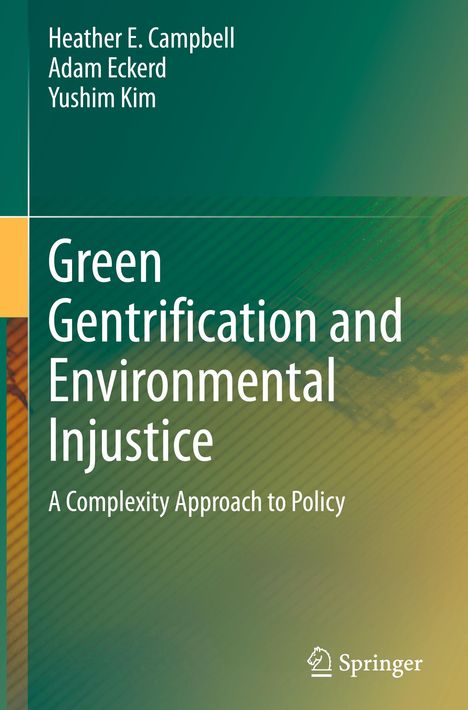Heather E. Campbell: Green Gentrification and Environmental Injustice, Gebunden
Green Gentrification and Environmental Injustice
- A Complexity Approach to Policy
(soweit verfügbar beim Lieferanten)
- Verlag:
- Springer Nature Switzerland, 09/2024
- Einband:
- Gebunden, HC runder Rücken kaschiert
- Sprache:
- Englisch
- ISBN-13:
- 9783031650994
- Artikelnummer:
- 11970229
- Umfang:
- 216 Seiten
- Nummer der Auflage:
- 2024
- Ausgabe:
- 2024
- Gewicht:
- 534 g
- Maße:
- 241 x 160 mm
- Stärke:
- 17 mm
- Erscheinungstermin:
- 14.9.2024
- Hinweis
-
Achtung: Artikel ist nicht in deutscher Sprache!
Klappentext
This book argues that, given the complex nature of the urban environment, we cannot find one optimal solution to reducing environmental injustice, in part because there is no singular cause. Environmental injustice emerges in particular settings because of the combined and interdependent effects of a variety of different policy and community characteristics. The authors argue that addressing these interlinked problems requires an understanding of the clusters of community and contextual factors that combine in a variety of ways to both create problems and imply policy approaches to managing them. They argue for the use of complexity-informed methods to assist in making public policy choices, such as Qualitative Comparative Analysis (QCA) and Agent-based Modeling (ABM), to enable us to better identify plausible solutions for specific contexts.
This volume offers a new perspective for strategically managing urban policy that considers the risk of gentrification and gentrification-related displacement, with the ultimate goal of improving social justice. Environmental injustice, pollution remediation, gentrification, and displacement are interlinked problems, all of which impinge on social justice in US cities. However, public policy research, and often practice as well, has tended to separately consider urban policy issues such as environmental injustice, brownfields and other pollution remediation, how to redevelop neighborhoods, and how to contend with gentrification and displacement. In this book the authors take a new perspective to such intertwined urban policy issues, using complexity thinking and, more importantly, complex adaptive systems approaches, in order to develop context-sensitive policy approaches to managing these ongoing problems.

